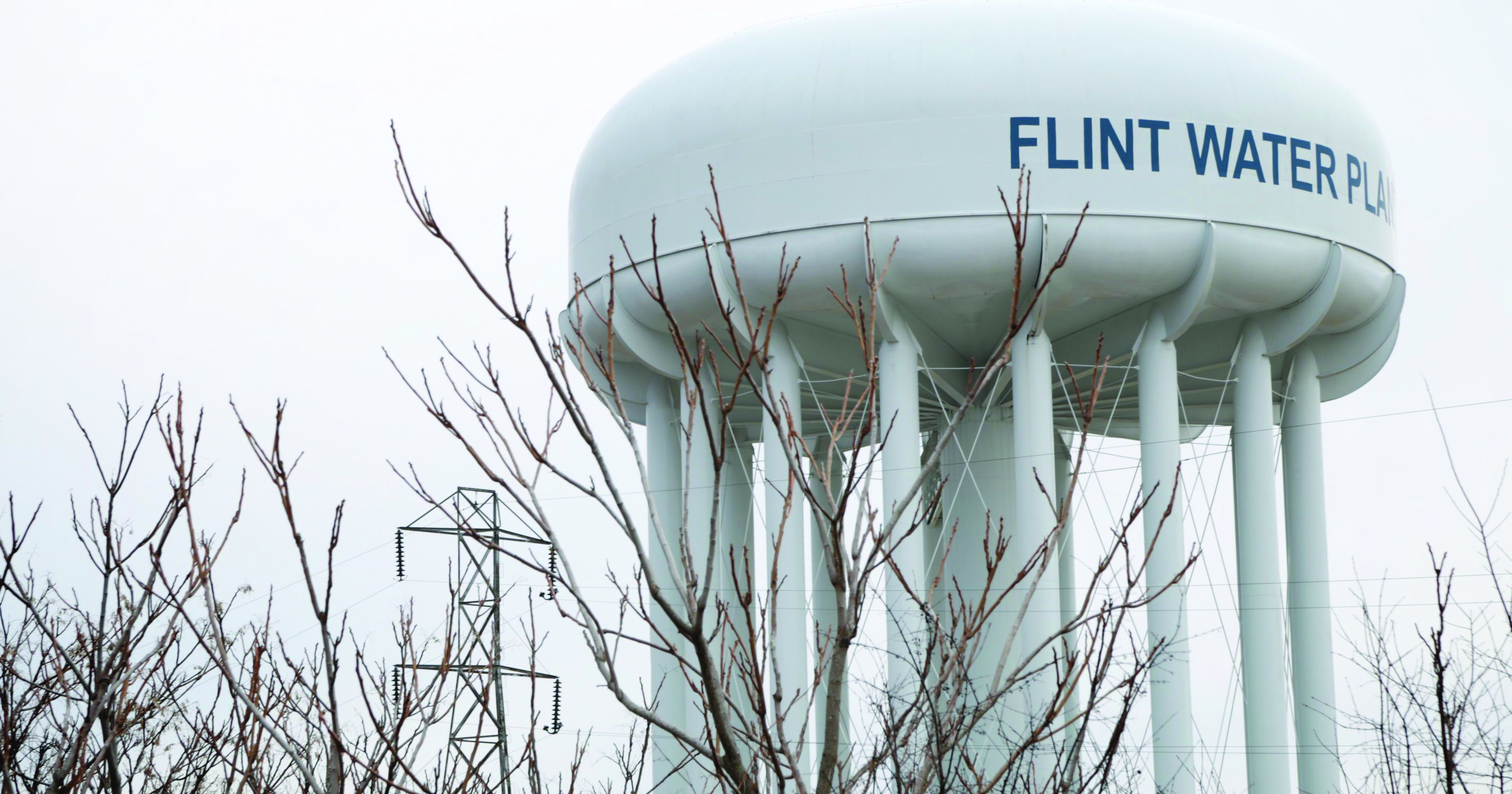Some 25 percent of all Americans depend on a for-profit source for their water supplies making the debacle in Flint a very repeatable possibility.
March 22 is “World Water Day,” a day created by the United Nations to inspire people to take action and work toward ensuring all people have access to safe water and sanitation systems. Water is a basic human right, but right now, the United States water infrastructure is failing and access to clean water, what has been thought of as a third-world problem, is now a crisis in our nation.
Flint, Mich., and its highly publicized public health crisis stemming from its contaminated water system is just another example of the U.S.’s failing infrastructure and how private companies are using these tragedies to their advantage.
When the Flint’s emergency manager used his power to switch the city from Detroit’s water system to the polluted Flint River, the move had a negative impact on Detroit as well.
Since 2004, according to city records, the Detroit water system has operated with budget deficits that averaged $57 million a year. Pulling Flint off its system – which was its biggest customer – exacerbated Detroit’s problems and forced Detroit to raise its own customers’ rates. The city began cutting off water to residents with unpaid bills while leaving bigger customers alone. It wasn’t until national outcry and growing public scrutiny that the Detroit Water and Sewerage Department (DWSD) was forced to stop the shutoffs.
It was then recommended that the DWSD be privatized – creating a public-private partnership (P3) right out of the playbook of the American Legislative Exchange Council (ALEC). The same argument the private sector has used to privatize other parts of public operations – greater efficiency and cost control – is being used to push to privatize water systems.
So far, DWSD remains in public hands, but approximately 25 percent of water systems in the U.S. are privatized. ALEC bills such as the “Establishing a Public-Private Partnership (P3) Authority Act” and the “Water/Wastewater Utility Public-Private Partnership Act” mandate that some public services be opened to bidding by for-profit corporations, and that the contract be awarded on a “lowest cost” basis regardless of other factors. ALEC’s “Environmental Services Public-Private Partnership Act” privatizes public water and sewage services and would prohibit local governments from requiring that contractors meet labor standards.
These model bills are still being pushed through legislatures throughout the country. In New Jersey, the Water Infrastructure Protection Act was passed last year, which bypasses citizen consent when a municipality decides to sell off its water system as long as policy makers can prove their system is deficient. Legislation currently sailing through the Wisconsin legislature is identical to the New Jersey legislation. It will remove obstacles on the leasing of public water systems – also eliminating democratic safeguards against quick sales of systems while adding protections that favor the purchaser.
The failings of the nation’s water infrastructure and the austerity being practiced by municipal governments leave public water companies especially vulnerable to privatization efforts. Since the passage of the Clean Water Act in 1972, when federal monies were flowing into water infrastructure, funding has decreased 80 percent. A report from the Government Accountability Office estimates that small water utilities will need up to $143 billion in infrastructure repairs in the near future.
According to proponents, privatization can provide much-needed capital to conduct the necessary repairs, but in places where privatization has occurred, there’s evidence that companies routinely put profits above people.
Veolia, a multi-national French corporation that controls water systems in many developing nations and in a few locations in the U.S., has been accused of deferring necessary maintenance of systems to keep labor costs low and failing to oversee systems properly. They’ve also been accused of unfair rate hikes and failure to encourage water conservation efforts.
In Indianapolis, Veolia was sued for breaking state contract law and for overcharging a quarter of a million residents. A grand jury subpoenaed four Veolia employees for allegations of falsifying water reports amid accusations by city and county officials that Veolia was skimping on staffing, water testing, maintenance and chemicals.
In the world of privatization, the claim that a corporation can be more “nimble” is a dog whistle word meaning that they are going to fail to employ enough people to respond to emergencies. Or that the personnel they do employ will be paid substandard wages resulting in high turnover and a lack of experience. Typically, according to Food & Water Watch, privatization leads to a loss of one in three jobs.
Environmental harm could be the result.
In December 2014, Fort Wayne, Ind., bought back its water system from Aqua America and paid a total of $67 million after residents complained about low water pressure and hard water that damaged appliances. In another location, Aqua was found to have charged twice as much as comparable publicly owned utilities. For a typical household within a county, using 5,000 gallons a month, Aqua Utilities charged 105 percent more than comparable publicly owned utilities, which added up to an extra $255 a year.
Prudent spending by municipalities and a reinvestment by the Federal government on water systems improvements could help communities avoid the pitfalls of privatization. The GAO recommends that municipal water systems practice better asset management – keeping track and prioritizing their systems’ needs. For example, in the case of Flint, Michigan there is little publicly observable evidence that any sort of asset management program was in place. No one is sure even how many lead service lines are in the city. Years of under-funding, a declining population, and neglect left the utility vulnerable to all sorts of problems, including the one that occurred.
Strong asset management practices could help communities shore up operations and create a safety net for avoiding predatory privatization.
The National Association of Water Companies, an organization that lobbies on behalf of private water companies like Veolia and Aqua America in Washington and throughout the country, claims that allowing private corporations to control public water is a solution that can provide the operational expertise and infrastructure investment necessary to prevent another Flint-like disaster. But that takes a public commodity and puts it into the hands of a private company, an untenable situation.
The U.S. needs to reinvest in its infrastructure to the levels necessary to maintain and improve existing systems. Municipal systems have an obligation to the public to provide safe and clean water to all citizens, with public accountability and oversight, not profits, being the only motivation behind its operations. Water is a basic human right.





